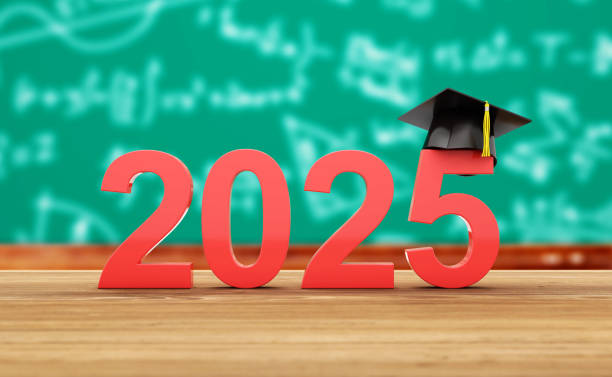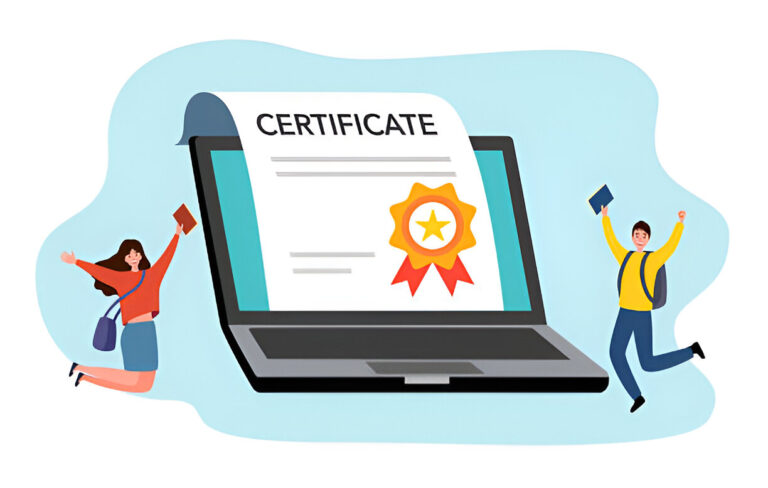How Online Physics Classes Helps Students Tackle Practical Scientific Challenges
Physics education has completely transformed in recent years, and it’s happening faster than most people realize. Students today face real-world challenges that require more than textbook knowledge – they need practical skills to solve complex problems.
According to a recent report, the global online tutoring market size was valued at USD 7.69 billion in 2023 and is expected to expand at a compound annual growth rate (CAGR) of 14.7% from 2024 to 2030.
This growth reflects how students are turning to digital platforms for better learning experiences. Modern online physics classes don’t just teach formulas – they prepare students to tackle everything from climate change to space exploration through hands-on virtual experiences.
Bridging Theory and Real-World Applications
The gap between physics theory and practical application has always frustrated students. Traditional classrooms often focus on equations without showing how they solve actual problems.
Online physics classes change this completely. They connect abstract concepts to real-world challenges students will face in their careers. Instead of memorizing formulas, students learn to apply physics principles to genuine scientific problems.
Interactive Problem-Solving Environments
Virtual platforms create immersive experiences where students can experiment with complex scenarios. They can model atmospheric changes, simulate space missions, or design renewable energy systems. This hands-on approach makes physics feel relevant and exciting rather than intimidating.
Real-Time Application Examples
Students work with current data from NASA, climate research centers, and medical facilities. They’re not just learning about theoretical particles – they’re analyzing actual research data and contributing to ongoing scientific discussions.
Industry-Connected Learning Pathways
Many programs partner with tech companies and research institutions. Students complete projects that mirror real workplace challenges, preparing them for careers in emerging fields like quantum computing and renewable energy.
With theory and practice connected, let’s explore the specific scientific challenges that modern physics education addresses through innovative virtual approaches.
Industry-Relevant Skills Development
The online physics tutoring service excels at developing career-ready skills. Students gain essential data analysis and programming competencies by working with large datasets, visualizations, and statistical models.
They also learn industry-standard engineering problem-solving methods, including finite element analysis and fluid dynamics modeling, using the same software as the aerospace and automotive sectors.
Furthermore, these programs cultivate strong research and communication abilities, enabling students to design experiments, analyze results, and present findings professionally. This focused skill development provides distinct career preparation advantages over traditional classroom settings.
Advanced Technology Integration
Modern virtual science courses use technology that goes far beyond simple video lectures. These tools create learning experiences that often surpass what’s possible in physical classrooms.
AI-Powered Learning and Simulation
Artificial intelligence adapts to each student’s learning pace and style. Machine learning algorithms identify knowledge gaps and provide personalized practice problems. Students can run complex simulations that would require supercomputers, all from their home computers.
Virtual and Augmented Reality Experiences
VR technology transports students inside atoms, lets them walk through particle accelerators, and provides virtual field trips to observatories and research facilities. These immersive experiences make abstract concepts tangible and memorable.
Cloud-Based Computational Tools
Students access high-performance computing resources through cloud platforms. They can perform calculations and run simulations that would be impossible on personal devices, giving them the same tools used by professional researchers.
While advanced technology creates amazing learning opportunities, the real value comes from developing practical skills that employers actually want and need.
Career Preparation Advantages
The benefits of online physics education extend far beyond convenience. These programs fundamentally reshape how students prepare for physics-related careers.
Flexible Learning for Working Professionals
Many students balance jobs, family responsibilities, and education. Online programs allow them to progress at their own pace while maintaining their current commitments. This flexibility means more people can pursue physics education who might otherwise be excluded.
Global Networking and Collaboration
Students connect with peers and instructors worldwide. They participate in international research projects and build professional networks that span continents. This global perspective is invaluable in today’s interconnected scientific community.
Cost-Effective Access to Premium Resources
Students access expensive simulation software, digital libraries, and research databases at a fraction of traditional costs. They can use the same tools as major universities without the associated tuition expenses.
Despite these clear advantages, some students worry about the effectiveness of online learning compared to traditional physics education methods.
Overcoming Learning Barriers
Modern online physics platforms have successfully addressed the concerns that once made people hesitant about virtual education. These solutions often work better than traditional approaches.
Personalized Learning Algorithms: AI systems monitor student progress and customize content, offering targeted support (e.g., extra practice or alternative explanations for challenging topics) that’s unfeasible in large lecture settings.
Interactive Problem-Solving Support: Online tools provide step-by-step solutions, facilitate peer collaboration, and offer immediate instructor feedback, often exceeding the help available in traditional classrooms.
Accessibility and Inclusion Features: Online platforms cater to diverse learning styles, offer translation services, and include accessibility tools, significantly broadening access to physics education for various learners.
Virtual Laboratory Experiences
Online physics education is addressing concerns about laboratory work through innovative virtual labs. These platforms offer superior hands-on experience via remote-controlled physical experiments, allowing students to operate real equipment globally and access expensive instruments.
Advanced simulation-based labs enable exploration of dangerous or impossible phenomena like quantum mechanics and black holes. Furthermore, VR technology provides safe, effective training on industry-standard equipment.
With practical experience validated, the focus now shifts to whether online physics education genuinely translates into significant career and academic success.
Measuring Success and Outcomes
The effectiveness of online physics education isn’t just theoretical – substantial data is showing real improvements in student outcomes and career advancement.
Academic Performance Improvements
Studies consistently show that students in well-designed online physics programs perform as well as or better than their traditional classroom counterparts. They demonstrate stronger problem-solving skills and better retention of key concepts.
Career Advancement Metrics
Graduates of online physics programs report higher job placement rates and faster career progression. They often earn industry certifications and professional recognition that opens doors to advancement opportunities.
Long-Term Professional Development
Students develop self-directed learning skills that serve them throughout their careers. They’re better equipped to adapt to changing technology and continue learning new skills as their fields evolve.
With proven success outcomes, the key question becomes selecting the right program to maximize your investment in online physics education.
Selecting the Right Program
Not all online physics classes are created equal. Understanding key evaluation criteria helps you choose a program that delivers real value for your career goals.
Accreditation and Quality Standards
Look for programs with proper regional accreditation and faculty with relevant industry experience. Check that the technology infrastructure is reliable and that support services meet your needs.
Curriculum Alignment and Specialization
Ensure the program aligns with your career goals and offers specialized tracks for your industry of interest. Consider transfer credit options and how the program fits into your overall educational pathway.
Student Support and Success Resources
Quality programs provide comprehensive technical support, academic advising, and career counseling. They also offer alumni networks and professional connections that can help with job placement.
When choosing an online physics tutoring service, these factors become even more important for ensuring you receive personalized attention and support.
FAQs
Can virtual labs really replace hands-on laboratory experience?
Modern virtual labs often provide superior learning experiences through simulations and remote-controlled equipment that surpass traditional lab limitations.
How do employers view online physics degrees?
Employers increasingly value the self-discipline and practical skills that online programs develop, especially when they include industry partnerships.
What technology skills will I develop?
Students typically master MATLAB, Python, LabVIEW, and specialized simulation software used across multiple industries.
Is online learning suitable for complex physics calculations?
Online platforms provide interactive calculators, AI-powered assistance, and collaborative tools that make complex problem-solving more accessible than traditional methods.
Wrapping Up
Online physics classes represent more than just educational convenience – they’re reshaping how students prepare for science careers. Through virtual labs, AI-powered learning, and real-world problem-solving, these programs deliver practical skills that employers value.
The technology integration, global collaboration opportunities, and flexible learning pathways create educational experiences that traditional classrooms struggle to match. Perhaps most importantly, they make quality physics education accessible to students who might otherwise be excluded by geography, schedule, or financial constraints.







